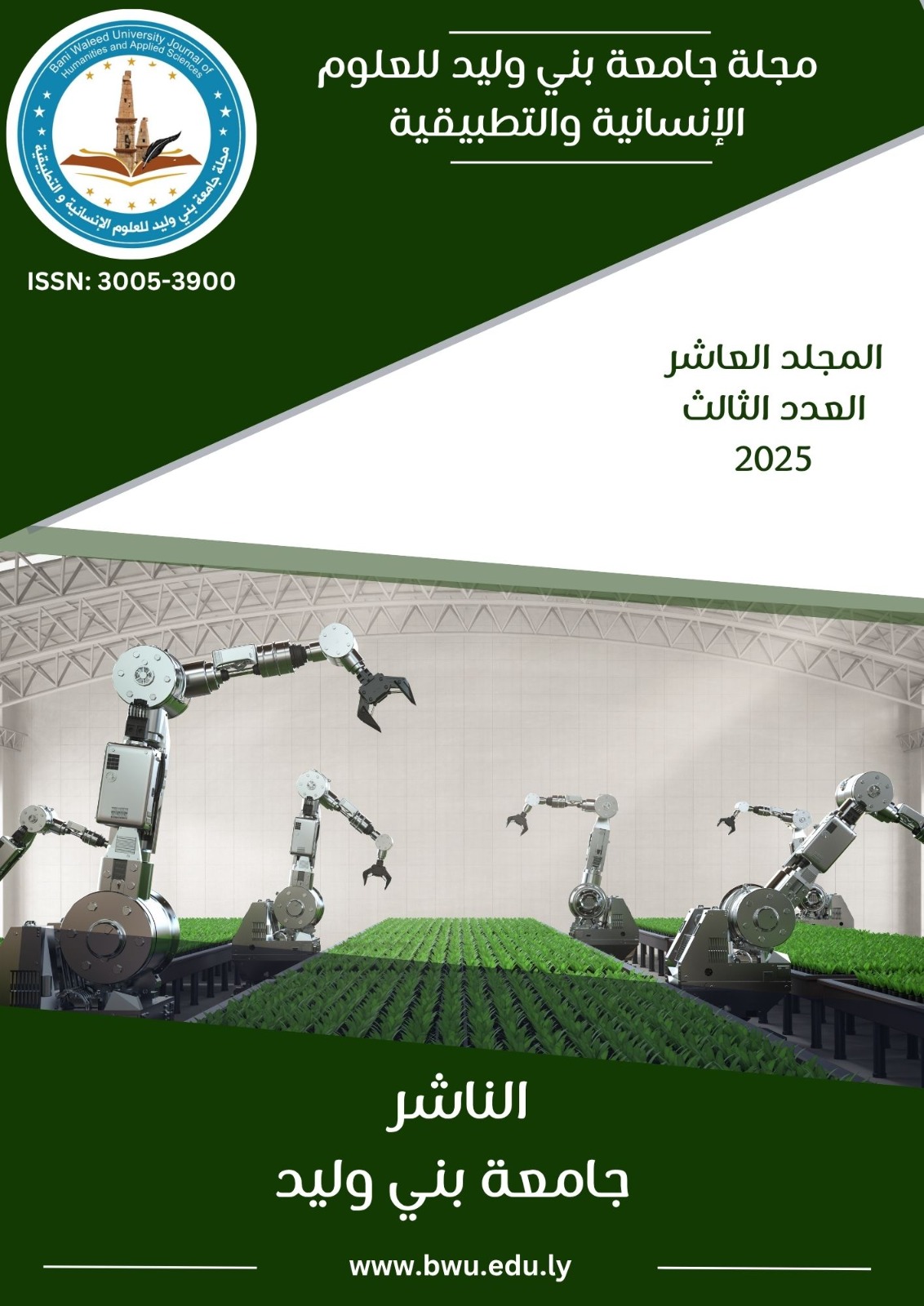Developing a Software Agent to Access Drug-Related Information from the Dark Web
DOI:
https://doi.org/10.58916/jhas.v10i3.877الكلمات المفتاحية:
Agent-Based System، Dark Web، Drug Information Retrieval، Software Agent، UML Modelingالملخص
Software agents have been increasingly utilized across various domains in information technology, including electronic commerce, information retrieval, and autonomous decision-making. In parallel, the dark web has become a prominent platform for illicit drug trading, particularly marijuana. While previous studies have focused on tracking users accessing the dark web, few have proposed structured methods for extracting drug-related information. Moreover, existing approaches are often time-consuming and complex, making them impractical for educational or analytical use. This research aims to model and develop a software agent capable of autonomously accessing and retrieving marijuana-related information from dark web marketplaces. The methodology follows a typical software agent development life cycle, encompassing requirement analysis, system design, development, evaluation, and documentation. Four specific plans were created to represent different dark web markets, each modeled using UML class diagrams. These diagrams were then normalized into a unified model to eliminate redundancy and streamline agent development. The results include a generalized UML class diagram that consolidates common functionalities such as user registration, login, drug search, and data retrieval across various markets. This normalized model facilitates more efficient and modular development of software agents in dark web environments. The main contribution of this study lies in its systematic modeling approach, offering a reusable framework for agent-based access to illicit online content for research and educational purposes. Future work will focus on extending this framework to support other domains and tasks within the dark web.
التنزيلات
المراجع
Bergman, M. K. (2001). White paper: the deep web: surfacing hidden value. Journal of electronic publishing, 7(1).
Dorri, A., Kanhere, S. S., & Jurdak, R. (2018). Multi-agent systems: A survey. Ieee Access, 6, 28573-28593.
Green, S., Hurst, L., Nangle, B., Cunningham, P., Somers, F., & Evans, R. (1997). Software agents: A review. Department of Computer Science, Trinity College Dublin, Tech. Rep. TCS-CS-1997-06.
Hayes, D. R., Cappa, F., & Cardon, J. (2018). A framework for more effective dark web marketplace investigations. Information, 9(8), 186.
Huang, X., Liu, W., Chen, X., Wang, X., Wang, H., Lian, D., Wang, Y., Tang, R., & Chen, E. (2024). Understanding the planning of LLM agents: A survey. arXiv preprint arXiv:2402.02716.
Jennings, N. R. (2001). Building complex software systems: The case for an agent-based approach. Communications of the ACM, 44, 35-41.
Jin, H., Huang, L., Cai, H., Yan, J., Li, B., & Chen, H. (2024). From llms to llm-based agents for software engineering: A survey of current, challenges and future. arXiv preprint arXiv:2408.02479.
Jin, Y., Jang, E., Cui, J., Chung, J.-W., Lee, Y., & Shin, S. (2023). Darkbert: A language model for the dark side of the internet. arXiv preprint arXiv:2305.08596.
Majdoub, Y., Charrada, E. B., & Touati, H. (2025). Towards Adaptive Software Agents for Debugging. arXiv preprint arXiv:2504.18316.
Morato, J., Sanchez-Cuadrado, S., & Navajas, S. (2025). Evaluating retrieval and ranking strategies on the dark web: a focus on Tor search engines. Information Discovery and Delivery.
Nwana, H. S. (1996). Software agents: An overview. The knowledge engineering review, 11(3), 205-244.
OSINT Team. (2024, May). Top 6 OSINT tools for dark web investigations in 2024. OSINT Team. https://osintteam.blog/top-6-osint-tools-for-dark-web-investigations-in-2024-0946426c87c3
Park, J. S., O'Brien, J., Cai, C. J., Morris, M. R., Liang, P., & Bernstein, M. S. (2023). Generative agents: Interactive simulacra of human behavior. Proceedings of the 36th annual acm symposium on user interface software and technology,
Qian, C., Liu, W., Liu, H., Chen, N., Dang, Y., Li, J., Yang, C., Chen, W., Su, Y., & Cong, X. (2024). ChatDev: Communicative Agents for Software Development. Proceedings of the 62nd Annual Meeting of the Association for Computational Linguistics (Volume 1: Long Papers),
Russell, S., & Norvig, P. (2010). Artificial Intelligence: A Modern Approach.
Wooldridge, M. (2001). Intelligent agents: The key concepts. In ECCAI Advanced Course on Artificial Intelligence (pp. 3-43). Springer.
Wooldridge, M., & Jennings, N. R. (1995). Intelligent agents: Theory and practice. The knowledge engineering review, 10(2), 115-152.
Wrona, Z., Buchwald, W., Ganzha, M., Paprzycki, M., Leon, F., Noor, N., & Pal, C.-V. (2023). Overview of software agent platforms available in 2023. Information, 14(6), 348.
Ye, D., Zhang, M., & Vasilakos, A. V. (2016). A survey of self-organization mechanisms in multiagent systems. IEEE Transactions on Systems, Man, and Cybernetics: Systems, 47(3), 441-461.
Zhang, N., Ebrahimi, M., Li, W., & Chen, H. (2022). Counteracting dark Web text-based CAPTCHA with generative adversarial learning for proactive cyber threat intelligence. ACM Transactions on Management Information Systems (TMIS), 13(2), 1-21.
Zhou, W., Jiang, Y. E., Li, L., Wu, J., Wang, T., Qiu, S., Zhang, J., Chen, J., Wu, R., & Wang, S. (2023). Agents: An open-source framework for autonomous language agents. arXiv preprint arXiv:2309.07870.













